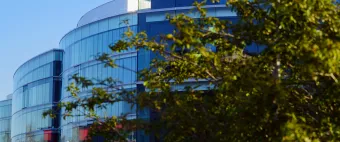What's coming for gender and security in 2023?

What's coming for gender and security in 2023?
International Women’s Day is an important opportunity to raise awareness of the crucial role of gender equality in achieving inclusive and sustainable peace and security. This year the three Geneva Centres at Geneva’s Maison de la Paix - Geneva Centre for Security Sector Governance (DCAF), the Geneva International Centre for Humanitarian Demining (GICHD), and the Geneva Centre for Security Policy (GCSP) – have teamed up to share our take on some of the trends and challenges in terms of gender and security in the year ahead.
All products of the Swiss government’s commitment to peace and security, the three Centres have complementary fields of expertise. DCAF is dedicated to making states and people safer through more effective and accountable security and justice. The GCSP is a unique platform to exchange ideas and develop sustainable solutions for a more peaceful future. And the GICHD plays a crucial role in the governance, development, and implementation of norms and standards for explosive ordnance risk reduction – including mine action and ammunition management activities. All put gender equality at the heart of their work.
One gender expert from each Centre talked about what lies ahead in 2023. From inequalities due to post-COVID-19 reconstruction, to the increased militarization of security processes, and the lack of women’s participation in international and national-level decision-making - they give you valuable insight. Be sure to check the resources at the end to get more in-depth information.

What are the major trends in 2023 related to security and gender?
Cristina Finch: We see a shift towards remilitarization globally since the start of the war in Ukraine, with policy and budgetary priorities shifting towards warfighting rather than peace building. This reverses progress on the feminist peace agenda, the Women, Peace and Security (WPS) Agenda and achieving gender equality. It also risks undermining critical efforts to address climate change and environmental destruction while deepening gender inequalities.
A growing body of research now recognises the gendered impacts of climate-conflict linkages and the need for immediate action. Women often bear the brunt of conflicts over land and natural resources, climate-related displacement, and gender-based violence.
Fleur Heyworth: I agree with Cristina: although many countries are now adopting a feminist foreign policy or explicitly putting gender on their agenda, increasing interstate and intrastate conflict as well as the response to the COVID-19 pandemic has augmented the securitization of security policy and led to growing inequality and insecurity. In 2022, military expenditure passed the US $2 trillion mark and during COVID-19 a further 124 million people fell into extreme poverty whilst the wealth of global billionaires increased by US 3.9 trillion. These are worrying trends for human security more broadly and the rights, needs and safety of women and girls specifically who continue to carry a disproportionate care burden, own fewer assets and have less access to decision-making.
Abigail Jones: From the GICHD’s perspective, one of the main trends we see in 2023 is integrating gender perspectives into localization of explosive ordnance risk reduction responses. This means striving for national ownership and complementarity between local and international actors to maximize their comparative advantages and increase the effectiveness of explosive ordnance risk reduction responses. However, local and national actors are not a homogenous group and include a diverse range of actors with different contextual knowledge, experiences, resources, and skill sets that are vital to strengthening emergency preparedness, response and resilience building in explosive ordnance-affected communities.
In support of the localization agenda, diverse local actors are increasingly involved in identifying solutions to the problem faced by explosive ordnance at the international, regional, national, and local level. This includes those working to promote the full, equal, and meaningful participation of women and girls, youth, persons with disabilities etc. Efforts are also underway to promote inclusive, representative and gender-balanced explosive ordnance risk reduction leadership.
What are the main challenges in 2023 related to security and gender in SSG/R?
Cristina Finch: The increased militarization of security processes is likely to undermine progress toward effective, human-rights based reform within the security sector – including work towards gender equality and implementation of the WPS Agenda. At the same time, we face the challenge that the Agenda becomes instrumentalized within the militarization agenda. That is, that it becomes used as part of a ‘them vs us’ claim on holding more progressive values, which itself fuels conflict.
When the WPS Agenda is used like this, in a self-congratulatory manner, rather than as a self-critical lens, the root causes of gender inequality and gendered insecurities are not being seriously acknowledged and addressed. Institutional and societal norms hindering gender equality, including harassment and violence, patriarchal stereotypes, and the pervasive unequal burden of care work resting upon women, remain imposing challenges for women. These challenges are particularly pronounced for women working in the security sector.
Fleur Heyworth: Challenges drive opportunities and this time is certainly challenging. Meaningfully advancing the Women Peace and Security Agenda within governments and organizations - and even maintaining the status quo – is proving difficult despite some progressive approaches. We have seen a backlash and reversal of women’s rights in some countries, and sexist attitudes and gender-based violence have increased in public spaces, homes and online. Moving the WPS Agenda beyond tokenism to ensure that words are matched with action and funding is critical especially now that resources are being directed towards military endeavours. The implications of this are significant if we are to truly prevent conflict - the level of gender equality in a country is often an indicator of its level of peacefulness and resilience. The Secretary General of the United Nations has suggested that we can either ‘breakthrough’ or ‘breakdown’, and the Common Agenda and New Agenda for Peace call for a more central role of women and youth in policy making and decision-making. Yet it will take creativity and commitment if we are to achieve this, including concrete measures such as gender disaggregated data and gendered analysis to see where different groups are represented and how their needs are being met.
Abigail Jones: It is widely recognized that humanitarian crises, including conflicts, affect people of diverse backgrounds and identities in different ways, and can exacerbate pre-existing gender inequalities. However, despite their critical contributions, in 2023 women and girls remain underrepresented in explosive ordnance risk reduction responses. Whilst there have been improvements in recent years with regards to the inclusion of women and girls at the community level and in the employment of women in operational roles, women’s employment in management and leadership positions, as well as their participation in disarmament fora and in national level decision-making remains limited. Women from explosive ordnance affected countries are particularly underrepresented, which limits their involvement in and influence over decision-making on how to respond to the problems faced by explosive ordnance.
How is your organization promoting and defending women’s rights in the security sector?
Cristina Finch: Transformational policies and practices are needed to achieve a security sector that effectively meets the needs of all people, and a security sector in which women have an equal opportunity to lead. At DCAF, we seek to achieve sustainable and meaningful change by working with security sector institutions to address the root causes of gender inequality.
For example, we are working with police and militaries across the world to support them to identify and address the barriers to women deploying to peacekeeping operations. Part of this is research around family and other caretaking responsibilities that disproportionately rests on female personnel, and how the security sector can change policies and practices to help ensure it doesn’t hold them back in fulfilling their career potential.
We have also been working with women in Colombia, Mali, and Yemen to support their advocacy to the security sector in terms of how the climate crisis is impacting upon women’s security and the security of their communities. In all our work, we seek to center and amplify the voices of women.
Fleur Heyworth: The GCSP supports women’s increased participation in decision-making in a broad range of security sectors by driving more women's leadership and inclusive leadership, as well as the application of a ‘gender lens’ in all our core activities. We offer online learning journeys for participants across the world, and tuition waivers for those from fragile and conflict affected countries to ensure access to those most in need. For several years we have partnered with the Kofi Annan International Peacekeeping Training Centre to co-deliver the ’Inspiring African Women Leaders’ course, and we work with partners to develop customized solutions, notably ‘Leading Mediation’ courses for the Mediterranean, Arab and newly formed OSCE women mediators networks. The GCSP is also host to the Secretariat of the International Gender Champions and Ambassador Thomas Greminger, GCSP’s Director, makes two personal commitments annually.
Abigail Jones: The GICHD believes that relationships, cooperation, and exchange with local and national actors are vital to understand contexts and more specifically the diverse lived experiences, needs and priorities in explosive ordnance-affected communities. The GICHD therefore works collaboratively with national and local partners to strengthen gender and diversity mainstreaming capacities, as well as to promote national ownership and inclusive governance. This includes promoting the involvement of women and women’s groups representatives in national strategy consultations, providing leadership training to help create an enabling gender-inclusive working environment, and gender and diversity mainstreaming skills-based training to equip partners to work towards their gender and diversity priorities.
The GICHD also works to promote greater gender-balance in participation in disarmament fora including the Anti-personnel mine ban convention and Convention on cluster munitions meetings of states parties, intersessional meetings, the UN National Directors Meeting, under the UN SaferGuard Framework and within the Open-ended Working Group (OEWG) on Conventional Ammunition.
GO DEEPER WITH THESE SELECTED RESOURCES:
- Elsie Initiative Opportunities for Women in Peacekeeping: Policy Series
- Gender and Security Toolkit - Tool 1: Security Sector Governance, Security Sector Reform and Gender
- Op-ed: Inspiring Women Leaders
- Advancing Inclusive Mediation Through the Lens of Leadership
- Gender and Operational Efficiency
- Guidance on Protection from Sexual Exploitation and Abuse

